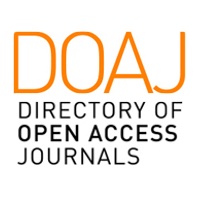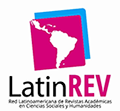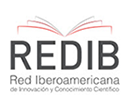A identidade docente: constantes e desafios
Palavras-chave:
Cultura Profissional, Desenvolvimento Profissional, Docentes, Identidade ProfissionaisResumo
A melhoria na qualidade do ensino requer bons professores. Docentes comprometidos com a difícil tarefa de ensinar que, por sua vez, exige dos profissionais sentido e responsabilidade. A identidade profissional docente se constitui como uma interação entre a pessoa e suas experiências individuais e profissionais. A identidade se constrói e se transmite. E existem algumas características ou constantes da identidade profissional docente que se repetem e que são, geralmente, independentes do contexto social ou cultural. Neste artigo, discutimos essas características da profissão docente que lhes garantem identidade.
Downloads
Referências
Beijaard, D., Meijer, P., & Verloop, N. (2004). Reconsidering research on teachers’ professional identity. Teaching and Teacher Education, 20, 107–128.
Bird, T., & Little, J. W. (1986). How schools organize the teaching occupation. The Elementary School Journal, 86(4), 493-512.
Blumenfeld, P. e. a. (1998). Teaching for Understanding. In B. e. al. (Ed.), International Handbook of Teachers and Teaching (pp. 819-878). London: Kluwer.
Bolivar, A. (2006). La identidad profesional del profesorado de secundaria: crisis y reconstrucción. Málaga: Aljibe.
Bonk, C., & Cunningham, D. (1998). Searching for Learner-Centered, Constructivism, and Sociocultural Components of Collaborative Educational Learning Tools. In C. Bonk & K. King (Eds.), Electronic Collaborators (pp. 25-50). New Jersey: Lawrence Erlbaum Ass.
Borko, H., & Putnam, R. (1996). Learning to teach. In D. B. a. R. Calfee (Ed.), (Vol. Handbook of Educational Psychology, pp. 673-708). New York: Macmillan.
Britton, E., Paine, L., Pimm, D., & Raizen, S. (2002). Comprehensive Teacher Induction. Dordrecht: Kluwer Academic Press.
Buchmann, M. (1984). The priority of Knowledge and understanding in teaching. In L. Katz & J. Raths (Eds.), Advances in Teacher Education (Vol. 29-50). Norwood: Ablex.
Bullough, R. (1998). Becoming a Teacher. In e. a. Bilddle B. (Ed.), Internatinal Handbook of Teacher and Teaching (pp. 79-134). London: Kluwer.
Cochran-Smith, M. (2004). Stayers,leavers, lovers, and dreamers. Insight about teacher retention. Journal of Teacher Education, 55(5), 387-392.
Cochran-Smith, M., & Fries, K. (2005). The AERA Panel on Research and Teacher Education: Context and Goals. In M. Cochran-Smith & K. Zeichner (Eds.), Studying Teacher Education. The Report of the AERA Panel on Research and Teacher Education (pp. 37-68). New Jersey: Lawrence Erlbaum Associates.
Cochran-Smith, M., & Lytle, S. (1999). The Teacher Research Movement: A Decade Later. Educational Researcher, 28(7), 15-25.
Chapman, J., & Aspin, D. (2001). Schools and the Learning Community: Laying the Basis for Learning Across the Lifespan. In D. Aspin, J. Chapman, M. Hatton & Y. Sawano (Eds.), (Vol. International Handbook of Lifelong Learning, pp. 405-446). London,: Kluwer.
Darling-Hammond, L. (2000). Teacher Quality and Student Achievement: A Review of State Policy Evidence. Educational Policy Analysis Archives, 8(1).
Darling-Hammond, L. (2001). El derecho de aprender. Crear buenas escuelas para todos. Barcelona: Ariel.
Day, C. (2001). Innovative Teachers: Promoting Lifelong Learning for All. In J. C. D. Aspin, M. Hatton, and Y. Sawano (Ed.), (Vol. International Handbook of Lifelong Learning, pp. 473-500). London: Kluwer.
Day, C., Elliot, B., & Kington, A. (2005). Reform, standards and teacher identity: Challenges of sustaining commitment. Teaching and Teacher Education, 21, 563-577.
Duffy, T., Dueber, B., & Hawley, C. (1998). Critical thinking in a distributed environment: A Pedagogical base for the design of conferencing systems. In C. y. K. Bonk, K (Ed.), Electronic Collaborators (pp. 51-78). New Jersey: Lawrence Erlbaum Ass.
Feiman-Nemser, S. (2001). From Preparation to Practice: Designing a Continuum to Strengthen and Sustain Teaching. Teachers College Record, 103(6), 1013-1055.
Fullan, M., & Hargreaves, A. (1992). A. What’s worth fighting for in your school? Working together for improvement. London: Open University.
Gess-Newsome, J. (2003). Secondary Teachers’ Knowledge and Beliefs about Subject Matter and their impact on instruction. In J. Gess-Newsome (Ed.), (Vol. Examining Pedagogical Content Knowledge. The Construct and the its Implication for Science Education, pp. 51-94). New York: Kluwer Academic Publisher.
Grant, C. a. W., K. (2000). Teacher Education and Knowledge in “the Knowledge Society”. The Need for Social moorings in Our Multicultural Schools. Teacher College Record, 102(5), 913-935.
Hager, P. (2001). Lifelong Learning and the Contribution of Informal Learning. In D. Aspin, J. Chapman, M. Hatton & Y. Sawano (Eds.), (Vol. International Handbook of Lifelong Learning, pp. 79-92). London: Kluwer.
Hargreaves, A., & Goodson, I. (1996). Teachers’professional lives: Aspirations and actualities. London: Falmer Press.
Hargreaves, D. (1997). Road to the Learning Society. School Leaderchip and Management, 17(1), 9-21.
Hargreaves, D. (1999). The knowledge-creating school. British Journal of Educational Studies, 47(2), 122-144.
Himanen, P. (2001). The Hacker Ethic. New York: Random House.
Horn, P., Sterling, H., & Subhan, S. (2002). Accountability through “Best Practice” Induction Model. ERIC ED, 464039.
Hoyle, E., & John, P. (1995). Professional Knowledge and Professional Practice. London: Cassell.
Huberman, M. (1993). The model of the independent artisan. In J. W. Little & M. W. McLaughlin (Eds.), Teachers’ Professional Relations in teachers’ work. Individual, colleagues and contexts (pp. 11-50). Chicago: Teacher College Press.
Kagan, D. (1992). Professional Growth Among Preservice and Beginning Teachers. Review of Educational Research, 62(2), 129-169.
Labaree, D. (1998). Educational Researchers: Livingwith a Lesser Form of Knowledge. Educational Researcher, 27(8), 4-12.
Ladson-Billing, G. (1998). Preparing Teachers for Diversity. In L. D.-H. a. G. Sykes (Ed.), (Vol. Teaching as a Learning Professional. Handbook of Policy and Practice, pp. 86-121). S. Francisco: Jossey-Bass.
Lasky, S. (2005). A sociocultural approach to understanding teacher identity, agency and professional vulnerability in a context of secondary school reform. Teaching and Teacher Education, 21, 899-916.
Little, J., & McLaughlin, M. (1993). Perspectives on Cultures and Contexts of Teaching. In J. W. a. M. Little, M.W. (Ed.), Teachers’ Work, Individuals, Colleagues, and Contexts (pp. 1-8). New York: Teacher College Press.
López Yäñez, J., & Sánchez Moreno, M. (2000). Acerca del cambio en los sistemas complejos. In A. Estebaranz (Ed.), Construyendo el Cambio : Perspectivas y Propuestas de Innovación Educativa. Sevilla: Secretariado de Publicaciones de la Universidad.
Lortie, D. (1975). School Teachers: A sociological study. Chicago: University of Chicago Press.
Magnusson, S., Krajcik, J., & Borko, H. (2003). Nature, Sources, and Development of Pedagogical Content Knowledge for Science Teaching. In J. Gess-Newsome (Ed.), (Vol. Examining Pedagogical Content Knowledge. The Construct and the its Implication for Science Education, pp. 95-132). New York: Kluwer Academic Publisher.
Marcelo, C. (1996). Constantes y Desafíos Actuales de la Profesión Docente. Revista de Educación (306), 205-243.
Marcelo, C. (1998). Formación de Profesores para el cambio educativo. Barcelona: EUB.
Marcelo, C. (1999). Estudio sobre estrategias de inserción profesional en Europa. Revista Iberoamericana de Educación(19), 101-144.
Marcelo, C. (2002). Aprender a enseñar para la sociedad del conocimiento. Educational Policy Analysis Archives, 10(35).
Marcelo, C. (2006). Políticas de inserción a la docencia: De eslabón perdido a puente para el desarrollo profesional docente.: Informe elaborado para PREAL (Programa para la Reforma Educativa en América Latina), Grupo de Trabajo sobre Profesionalización Docente, y presentado el 23 de noviembre en el seminario “Políticas para integrar a los nuevos profesores en la profesión docente”.
OCDE. (2005). Teachers matter: attracting, developing and retaining effective teachers. Paris: OCDE.
Onofre, M. (2000). Conhecimento prático, auto-eficácia e qualidade do ensino. Um Estudo Multicaso em Professores de Educação Física. Universidade Tecnica de Lisboa, Lisboa.
Pajares, M. F. (1992). Teachers’ Beliefs and Educational Research: Cleanning Up a Messy Construct. Review of Educational Research, 62(3), 307-332.
Richardson, V. (1996). The Role of Attitudes and Beliefs in Learning to Teach. In T. B. a. E. G. J. Sikula (Ed.), (Vol. Handbook of Research on Teacher Education, pp. 102-119). New York: Macmillan.
Schön, D. (1983). The Reflective Practitioner. New York: Basic Books.
Shulman, l. (1992). Renewing the Pedagogy of Teacher Education: The Impact of Subject Specific Conceptions of Teaching. Paper presented at the Simposium sobre Didácticas Específicas en la Formación de Profesores, Santiago de Compostela.
Shulman, L. (1998). Theory, Practice, and the Education of Professional. The Elementary School Journal, 98(5), 511-526.
Sloan, K. (2006). Teacher identity and agency in school worlds: beyond the all-good/all-bad discourse on accountability-explicit curriculum policies. Curriculum Inquiry, 36(2), 119-152.
Smyth, J. (1995). Teacher’ Work and the Labor Process of Teaching. In T. a. H. Guskey, M. (Ed.), Professional Development in Education (pp. 69-91). New York: Teacher College Press.
Sykes, G. (1999). Teacher and Student Learning. Stregthening Their Connection. In L. D.-H. a. G. Sykes (Ed.), (Vol. Teaching as a Learning Profession. Handbook of Policy and Practice, pp. 151-179). S. Francisco: Jossey-Bass.
Talbert, J., & McLaughlin, M. (2002). Professional Communities and the Artisan Model of Teaching. Teacher and Teaching, 8(3), 325 – 343.
Tardif, M. (2004). Los saberes del docente y su desarrollo profesional. Madrid: Narcea.
Terigi, F. (2007). Desarrollo profesional continuo y carrera docente en América Latina. Paper presented at the Desarrollo profesional docente en América Latina, Lima.
Tomlinson, H. (1997). Continuing Professional Development in the Profession. In H. Tomlinson (Ed.), Managing Continuing Professional Development in Schools (pp. 13-26). London: Paul Chapman.
van Veen, K., Sleegers, P., & van de Ven, P. (2005). One teacher’s identity, emotions, and commitment to change: a case study into the cognitive-affective processes of a secondary school teacher in the context of reforms. Teaching and Teacher Education, 21, 917-934.
Vonk, J. H. C. (1996). A Knowledge Base for Mentors of Beginning Teachers: Results of a Dutch Experience. In R. McBridge (Ed.), (Vol. Teacher Education Policy, pp. 112-134). London: Falmer Press.
Wideen, M., Mayer-Smith, J., & Moon, B. (1998). A critical Analysis of the Research on Learning to Teach: Making the Case for an Ecological Perspective on Inquiry. Review of Educational Research, 68, 130-178.
Wilson, B. (1996). What is a constructivist learning environment. In C. L. Environment (Ed.), (pp. 3-7). Englewood Cliffs: Educational Technology Publications.
Yinger, R., & Hendricks Lee, M. (2000). The Language of Standards and Teacher Education Reform. Educational Policy, 14(1), 94-106.
Downloads
Publicado
Como Citar
Edição
Seção
Licença
Os direitos autorais pertencem exclusivamente aos autores. Os direitos de licenciamento utilizados pelo periódico é a licença Creative CommonsAttribution-NonCommercial 4.0 International (CC BY-NC-SA 4.0): são permitidos o compartilhamento (cópia e distribuição do material em qualquer meio ou formato) e adaptação (remix), transformação e criação de material a partir do conteúdo.



























